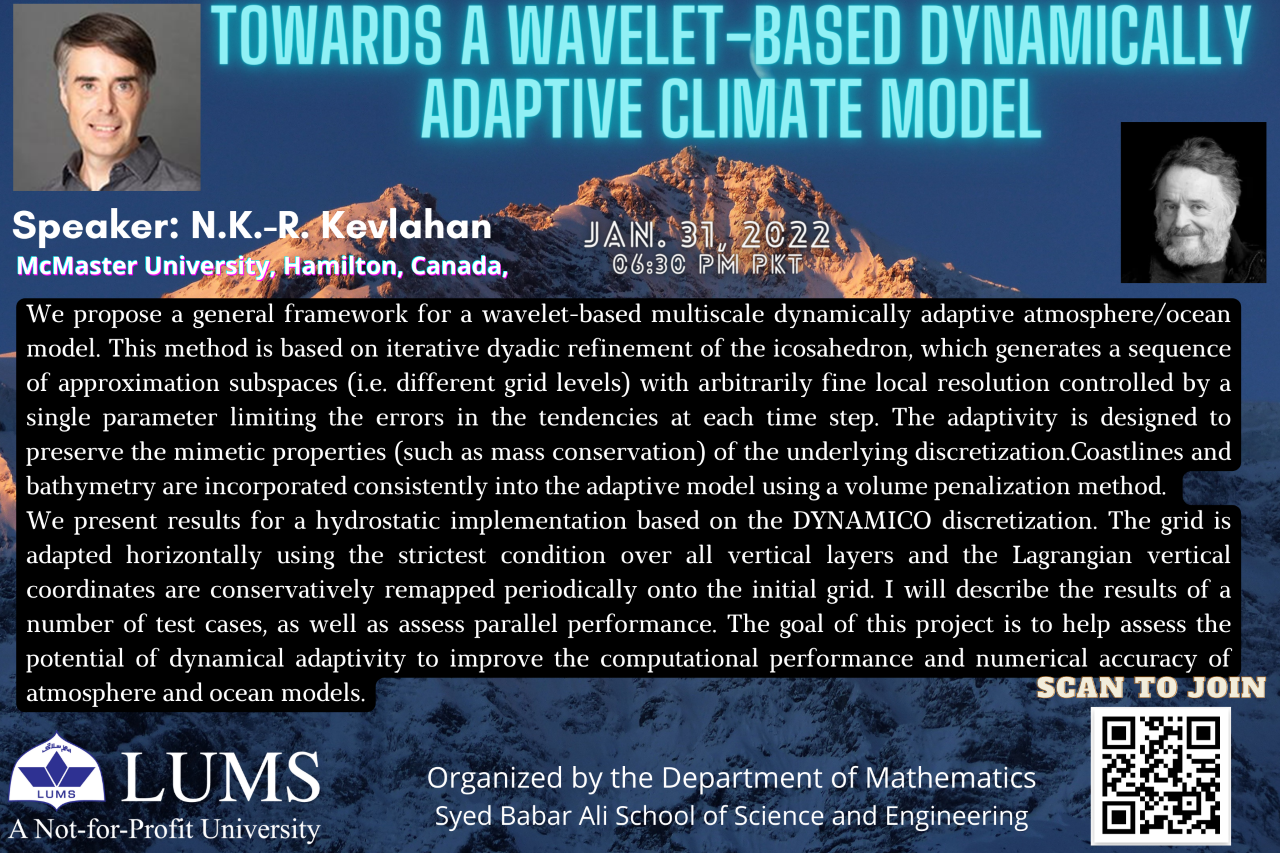
Event date:
Jan
31
2022
6:30 pm
Towards a wavelet-based dynamically adaptive climate model
Speaker(s)
Prof. Nicholas Kevlahan
Venue
Via Zoom at the department of Mathematics SBASSE, LUMS.
Abstract
In the Seminar 'Towards a wavelet-based dynamically adaptive climate model' We propose a general framework for a wavelet-based multiscale dynamically adaptive atmosphere/ocean model. This method is based on iterative dyadic refinement of the icosahedron, which generates a sequence of approximation subspaces (i.e. different grid levels) with arbitrarily fine local resolution controlled by a single parameter limiting the errors in the tendencies at each time step. The adaptivity is designed to preserve the mimetic properties (such as mass conservation) of the underlying discretization. Coastlines and bathymetry are incorporated consistently into the adaptive model using a volume penalization method.
We present results for a hydrostatic implementation based on the DYNAMICO discretization. The grid is adapted horizontally using the strictest condition over all vertical layers and the Lagrangian vertical coordinates are conservatively remapped periodically onto the initial grid. I will describe the results of a number of test cases, as well as assess parallel performance. The goal of this project is to help assess the potential of dynamical adaptivity to improve the computational performance and numerical accuracy of atmosphere and ocean models.
We present results for a hydrostatic implementation based on the DYNAMICO discretization. The grid is adapted horizontally using the strictest condition over all vertical layers and the Lagrangian vertical coordinates are conservatively remapped periodically onto the initial grid. I will describe the results of a number of test cases, as well as assess parallel performance. The goal of this project is to help assess the potential of dynamical adaptivity to improve the computational performance and numerical accuracy of atmosphere and ocean models.
Prof. Nicholas Kevlahan is a Professor in the Department of Mathematics and Statistics at McMaster University, Canada. He has been an invited professor at Université Grenoble-Alpes, INRIA, École Normale Supérieure (Paris), École Polytechnique (Paris), and a visiting researcher at the University of Cambridge. His interdisciplinary research program is focused on advanced mathematical and computational methods for fluid dynamics problems from physics and engineering. His current research includes the theory and computation of fluid turbulence, with a special interest in numerical methods based on the wavelet transform.
Registration link

